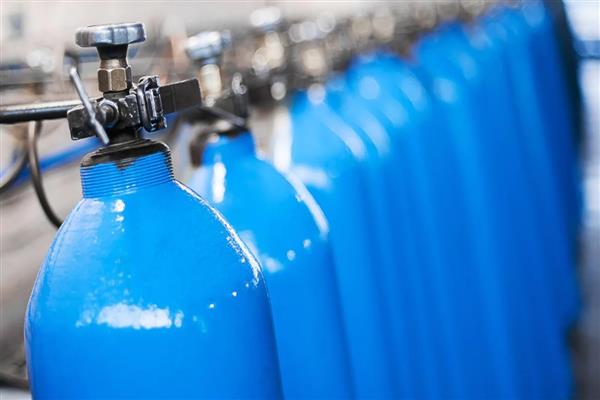SRINAGAR, 17 APRIL: The rapid response of the government of Jammu and Kashmir and its multi-pronged strategies to tackle the global pandemic, COVID-19, have not only been able to quickly flatten the epidemic curve, but have also strengthened emergency health services to respond more effectively to impending health challenges.
Although it is a stupendous task, but the administration of UT, through its professional manpower and strategic planning, has achieved this success by developing clear guidelines for the public, conducting comprehensive testing, contact tracing and supporting those in quarantine to facilitate compliance.
With the intervention of the Lieutenant Governor’s administration and good support from the Government of India, the JK dispensation was able to increase its oxygen production capacity from 14916 lpm in August 2020 to 90300 lpm currently. UT had 24 oxygen plants as of August 2020 and an additional 87 plants have been added since then.
As Covid cases began to rise, J&K, like other states, found itself struggling to contain the pandemic in all its forms. When the second wave hit, the demand for medical oxygen soared and tragic scenes unfolded with people struggling to access the vital commodity. The sudden surge in demand was compounded by the concentration of oxygen production in the far eastern regions of the country. The number of cryogenic tankers needed to transport liquid medical oxygen (LMO) was too small to meet the sudden increase in demand from other locations to J&K.
The government responded in several ways: additional tankers were brought in from outside, the oxygen supply was geo-mapped, and an online system was established to track the real-time movement of cargo. In addition, the establishment of pressure swing adsorption (PSA) plants has been accelerated, and the purchase and distribution of oxygen concentrators have also been intensified.
Speaking on India’s appointment with the COVID-19 crisis, the Prime Minister acknowledged it as the crisis of the century. Applauding the vigor and enthusiasm with which India has coped with the crisis, he said, “Thanks to the efforts of everyone, from a single lab at the start of the pandemic, we now have 3,000 testing labs in the country. The government has been working around the clock to boost production and supply of essentials such as N95 masks, PPE kits, ventilators. The movement to become Aatmanirbhar has ensured self-sufficiency in all our abilities. He also mentioned the critical role played by Indian-made ventilators and the largest vaccination campaign undertaken in the world to fight against COVID-19.
According to him, the management of the production and transport of oxygen in times of crisis on a war footing is an example in itself.
“All districts now have at least one PSA plant available to them, and the Center, together with the states, has commissioned 4,000 new oxygen plants. One lakh concentrators have also been installed with a focus on geographically remote areas,” he said.
The government of Jammu and Kashmir has also received a batch of 9 medical oxygen plants. The state-of-the-art, European-made Pressure Swing Adsorption (PSA) oxygen plants were airlifted from Frankfurt, Germany by an Army C-17 cargo plane. Indian air on June 5 and delivered to Srinagar airport today morning. Five of these new plants with a production capacity of 4000 LPM have been installed in hospitals in Kashmir and the other 4 with a production capacity of 4400 LPM have been installed in hospitals in Jammu. The previous consignment of 7 plants was also brought by the Indian Air Force aircraft.
Lieutenant Governor, Manoj Sinha expressed his gratitude to Prime Minister, Narendra Modi, saying it was only his personal intervention that enabled J&K to receive 16 oxygen plants from Europe in such a short time. .
“Our goal is to increase medical supply across UT with a vision to address any future health emergencies. The capacities of the medical infrastructure must be improved at all levels,” observed the LG.
According to official figures, Jammu and Kashmir has been the leader in vaccination against Covid with the two doses administered to 100% of the population over 18 years of age. Similarly, the population in the 15-18 age group was 100% covered from the first dose.
The Center had announced a financial aid program for children who have lost their parents to the coronavirus. These children receive a monthly allowance once they reach the age of 18 from a corpus of Rs 10 lakh to meet personal and higher education expenses under the scheme “PM-CARES for Children”. Once they turn 23, the government will give them the full Rs 10 lakh.
The J&K government had also announced a special lifelong pension for elderly people who have lost the only time-earning member of their family and a special scholarship for children who have lost their parents. According to an official, 418 pension cases and 414 scholarship cases were also sanctioned for families and children who lost their parents at J&K.
Under the Covid Special Death Assistance Scheme (SACM Scheme), a monthly pension of Rs 1000 is provided through the DBT to the surviving spouse and eldest dependent member. The scholarship of Rs 20,000 per year for in-school students and Rs 40,000 for college students is also provided by DBT. (KNS)






More Stories
🌱 Rail In Roanoke Fifth Anniversary + ‘Love Letters’ Production
Industrial production in South Korea contracts by 1.8% in September
PM Modi lays foundation stone for C-295 transport aircraft production plant